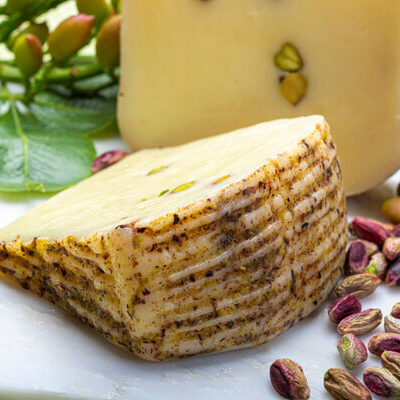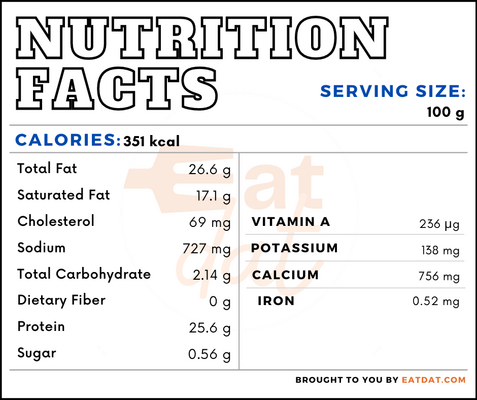
Provolone
What is Provolone?
Provolone is a specific type of cheese of Italian origin. It is usually made from cow’s milk through the pasta filata method, which gives it an elastic and stringy texture, especially when heated. The semi-hard cheese is uniquely molded in a cone, sausage, or pear shapes.
- Off white in color, this cheese has variations known as provola and provoleta.
- Its taste varies from sharp to mild, depending on how long it has been aged.
Some popular provolone cheese brands are:
- BelGioioso
- Sargento
- Auricchio
- Organic Valley
- Applegate
- Glacier Ridge Farms
- Tillamook
- Igourmet
Origin of provolone
This cheese was first produced in the Po Valley. Its production is a mix of the dairy culture of spun paste from the South and the local dairy industry. The unification of Italy in 1861 ensured that the southern producers moved their production to the north, specifically the provinces of Piacenza, Cremona, and Brescia, where the cheese is still produced.
Nutrition
Nutritional profile for provolone cheese (100 g):

This cheese is rich in calcium, phosphorous, potassium, sodium, vitamin A, and retinol. Also, it contains magnesium, zinc, selenium, folate, choline, carotene, vitamin D, vitamin K, and fatty acids such as glutamic acid, proline, and serine in decent quantities. Regular consumption of cheese may help in combating inflammation, preventing osteoporosis and arthritis, decreasing the risk of fractures, and managing obesity.
Commercial production
Provolone is produced from cow’s milk. To prepare the mild version, calf rennet is added to the milk for coagulation. The strong version uses lamb rennet. Then, the curdled cheese is drained and molded into the required shape, ensuring that air bubbles are all smoothed out. After that, is salted and left to age. Mild cheese ages for a period of 2 to 3 months while the strong version is left to rest for more than 4 months.
Provolone recipes
This is a versatile cheese used in many dishes due to its meltable factor. This makes it suitable for sandwiches, pastas, desserts, pizzas, and baked goods. Also, it works well as a topping.
- Chicken Provolone
- Cheesy Baked Chicken
- Baked Provolone with Herbs
- Provoleta
- Stuffed Chicken
- Tomato Sandwiches
- Pasta Bake
- Scalloped Potatoes
- Baked Mostaccioli
- Eggplant Parmesan
- Provolone Sticks
- Sous Vide Italian Meatloaf
- Spaghetti alla Nerano
- Polpettone
- French Onion Soup
FDA regulations
The FDA defines this cheese as one made with the pasta filata method and having a stringy texture. It must contain at least 45 percent milkfat and 45 percent moisture. In the US, it must either be pasteurized or cured at more than 35° F for 60 days. Provolone Valpadana is now protected under European Union through a PDO and may only be produced in certain provinces of the Lombardy region in Italy. It comes in the mild, strong, smoked, and aged strong varieties.
References
Provolone Valpadana, The Extraordinary Italian Taste, https://www.italianmade.com/usa/product/provolone-valpadana-pdo/
Rozenberg, Serge et al. “Effects of Dairy Products Consumption on Health: Benefits and Beliefs–A Commentary from the Belgian Bone Club and the European Society for Clinical and Economic Aspects of Osteoporosis, Osteoarthritis and Musculoskeletal Diseases.” Calcified tissue international vol. 98,1 (2016): 1-17. doi:10.1007/s00223-015-0062-x, https://www.ncbi.nlm.nih.gov/pmc/articles/PMC4703621/
History of Provolone Valpadana P.D.O., Consorzio Tutela Provolone Valpadana, https://www.provolonevalpadana.it/en/history-of-provolone-valpadana/
